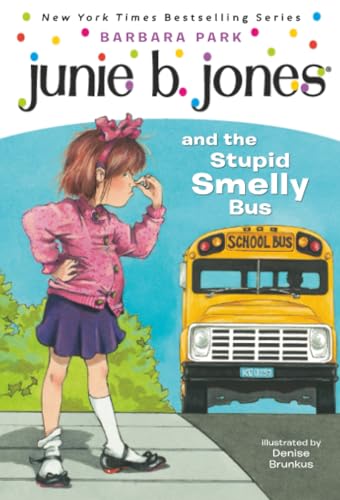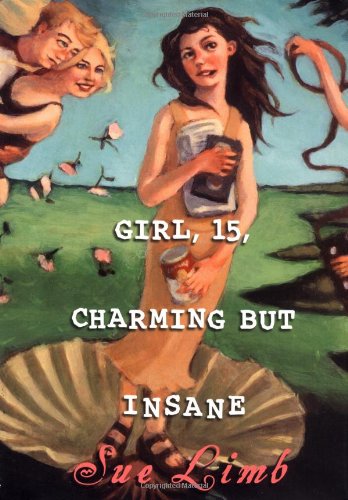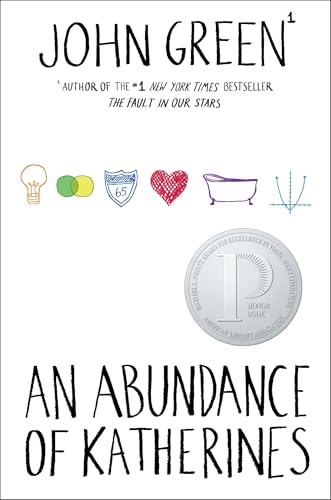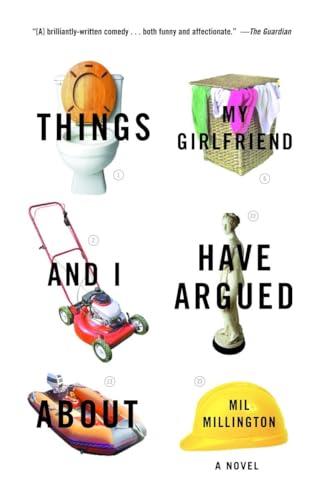(Again, I ask the Blogger gods: WHERE IS MY IRONY FONT?)
Today, The Washington Post takes on the topic of all topics in children’s literature with its article “Plot Twist: The Newbery May Dampen Kids’ Reading.” The article notes that, following the SLJ article, “the literary world is debating the Newbery’s value, asking whether the books that have won recently are so complicated and inaccessible to most children that they are effectively turning off kids to reading.”
The Post presents points from both sides of the issue, but any sense of objectivity is lost by the headline. For instance, the article doesn’t mention that in the blog of the same School Library Journal, Nina Lindsey wrote a rebuttal to the original article. Two Kid Lit Divas going head-to-head on opposite sides, and both of them know their sh... stuff. Truly, there is certainly some worthy debate in the Newbery arena, but I don’t think we need the Washington Post chiming in — unless they’re going to start a Series of Obvious Debates:
Teachers Think “No Child Left Behind” May Be Leaving Children BehindEvery professional arena has its areas of debate and compromise, and the nuances of those topics are often lost in the mainsteam media. That’s why the New York Times annual article about Young Adult books or summer reading programs gets stuck in our collective craws. Because we realize that they don’t have all the information, that they’re throwing ideas out there almost randomly, and that they may actually reach people with these half-assed conclusions because they have the readership. It’s frustrating.
Tax Attorneys Debate Whether Tax Law is Too Complicated
Pimps Say, “It’s Hard Out Here For a Pimp”
It’s even more annoying as these same papers cut their reviews of kids’ and teens’ books. I almost laughed when I saw The Washington Post’s Best Kids Books section in Book World. This edition had credibility when the paper was reviewing a decent number of kids’ books. Now, the books are listed with “excerpts from the most favorable reviews of the year,” and I just have to wonder. Specifically, I wonder how many books they were looking at in the first place, and — given that I’ve not seen many mentioned in the paper — if every book they reviewed had to be included. Oh, and how they chose those few books that they did review. Having read more than two hundred picture books in the last three months, I can say with some authority that the Preschool selection is surprising random.
Anyway, my feeling on the Newbery Awards is that they are what they are, and perhaps it is less that the Newberys should change than that teachers, librarians and parents should change the way they choose their books. There are lots of resources that select good books — with the ALSC Notable Children’s Books being a good place to start, as it includes all the ALA award winners plus other great titles. Personally, I couldn’t finish my yearly reading without the Best Books lists of School Library Journal, Publishers Weekly, and The Horn Book. (For more 2008 Best Books lists, visit Chicken Spaghetti’s amazing round-up.)
But perhaps most importantly for the kidlitosphere, this continuing debate emphasizes the need for the Cybils awards — where literary value is balanced with kid appeal. I’m proud to be a part of that process, now more than ever.
























14 comments:
Very interesting. I will have to read all your links on this subject! As an aspiring author, I've been told to read the Newbery books to better understand what editors seek. I wonder if that will continue to be suggested.
There are certainly many award-winning books that don't hold my interest. Or my daughter's. And on the flip side, we enjoy many books that haven't received recognition at all.
Read what you enjoy is what I say, regardless of public accolades. It doesn't matter if no one else likes it, if it resonates with you, that's all that matters.
Thanks for the post. I had more than one student who would look at a Newbery book, see the little circle and say, "Oh that that book means it's boring. I am not going to read it." Clearly it's not the only method for choosing a book. Thank goodness.
And I agree, so much is lost when the main stream media picks it up and then people get all kind of misconstrued ideas. It's frustrating.
(That deleted comment was mine-- I found something I wanted to change.)
I think you're onto something with the Series of Obvious Debates. Here are some of mine:
Parents Wonder, "Will Buying Electronic Beeping Toys For My Kids Drive Me Insane?"
Kutesy Misspellings On Signs and Cereal Boxes May Send the Rong Messages To Wreaders.
What the H** is Up With the Caldecott Award Anyway?
The WaPo article had an attention-getting headline; that's for sure. Events aren't quite that dramatic. I do think it's relevant for the paper to include the article, though. What we see as HUGE, CONTROVERSIAL discussions sometimes have not reached the larger public.
Perhaps part of the problem is that a lot of people over-rely on the Newbery (and Caldecott) awards to find books that children will like. For me, "Reading Rainbow" stickers work better--not to mention my own reading and listening to kids tell me what they like.
Thanks for the nice shout-out, MR.
I had a chance to hear a former Caldecott committee member speak last week and her take on this topic was, in effect, that these awards exist to recognize excellence, not popularity. Popular books are already being read: they are, after all, popular. The awards, in this view, act as a corrective, or at least a countercurrent, to the broader marketplace.
The minute you set 'popular' against 'excellence', of course, you're opening yourself up to accusations of elitism. To which I say: well, of course it is. Literature is always going to be an elite-driven enterprise to some extent. And there's nothing wrong with that.
Nothing wrong with it, at least, until the elites fall into the kind of navel-gazing that leads them to lose the bigger picture. At which point, people say things like:
"...the literary world is ... asking whether the books that have won recently are so complicated and inaccessible to most children that they are effectively turning off kids to reading.”
At which point I can only say: get over yourselves. Those little gold and siver stickers are one very small part of a much, much larger battlefield. If kids' connection to reading could be lost this easily, then it could also be won that easily by one, three, five or ten books, instead of dozens and dozens over years and years, within a larger cultural and media environment sending extraordinarily mixed messages about reading and its importance.
Finally, as long as we're on the subject of Big Media cluelessness of our field, I can't help but cite - and lament afresh - the appalling Caitlin Flanagan Twilight article in the Atlantic...
Thank you! We were just talking about this article (and today's crop of blog posts about it) at work.
My take? Recognize what the Newbery does and does not recognize.
Yes, other books might be more popular. Do they get the Newbery? NO! That's not what it's there for, and NO! we should not change what the Newberry stands for, because there are 85 bajillion other awards that award for that. Yeesh.
Thanks for your comments. If anyone has done a post about it, or if you know of a particularly good one, feel free to include the link here in the comments.
Extra thanks to Tim B., though, for one of the most insightful comments ever. Love it. Now can I shrink it to a bummper sticker.
But why shouldn't the Washington Post report on a current controversy about children's books? There is one, after all. The headline is not good (going all-out for the click), but the rest of the article is well-reported.
I think this Washington Post article is an example of why newspapers are struggling. It's reporting on an article that was written two months ago. Yeah, the listservs and blogs were hopping about it--two months ago. It's over now.
Oh you made me laugh - a series of obvious debates. Ha!
This was a very interesting post, and I hope to check out all the links that you provided. I'm always popping in and out of your blog to find ideas for stuff for my son, and some of these links might be helpful too.
I also wanted to let you know about a Children's Book quiz and a giveaway that I am having at my personal blog. Being a leader in the "kid lit" blogworld, I thought you and your readers might be interested. I'm sure you'll find the quiz quite simple but it might be fun. And you could win a $20 gift card to Target. The link is: http://mrsfligs.blogspot.com/2008/12/award-inspiration-quiz-and-giveaway.html
Thanks and keep up the great work! Even though I don't always comment, I do read your blog regularly and find it so helpful.
Thanks, Pam. That's a lot of what I wanted to say about this article. No, wait, I've got to say more.
I'm not unhappy with the Post over this article... I'm unhappy with the writer. I wish Bob Thompson had written this article. He covers publishing news for the Post and writes the great articles about the Caldecott and the Newbery every year.
The writer of this article seemed to know very little about the bigger picture and went for a dramatic headline instead.
My colleague, Kristi Jemtegaard, who does write thoughtful reviews for the Post (many of which were excerpted in the link you mentioned)and who has been on both the Caldecott and the Newbery was quoted in the article.
Here's the quote:
"Jemtegaard said that the Newbery selection process, though "not perfect," is valuable because it raises the profile of children's literature -- and because "it makes us think harder about what we do."
Actually, she wasn't talking about the Newbery selection process. Her response was about Anita Silvey's article. Kristi said that articles such as Anita's are great for the children's book community because it gets us talking and debating and "it makes us think harder about what we do."
An article that misattributes quotes to make a point is not one I'm going to take seriously. But, alas, the majority of the readership doesn't know that... and they will take it seriously.
I'm with tim b; I respect Newbery winners, and I make it a point to read them just because they're Newbery winners.
I'm also with you, MR, in that we need to recognize "they are what they are," and those stickers are not the only way to choose good books for kids.
I suppose I take issue with the idea that they are "too complicated and inaccessible to most children." Inaccessible or differently-accessible? (Yeah, you're supposed to laugh at that.)
As someone who fell in love with Shakespeare in high school when an excellent teacher made his work accessible, and as someone who believes kids are way-yonder smarter than they are often credited for being, I believe many Newbery-winners can be loved and appreciated by many kids. It's all about presentation.
Yes, kids should be encouraged to read for pure pleasure, on their own, but it's also okay to offer them "excellence" in literature, to read with them, and help them decide for themselves what excellence is.
Post a Comment